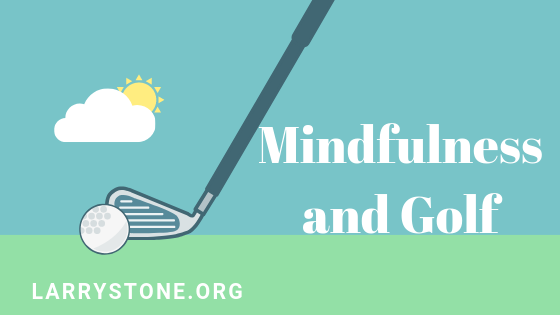
The sport of golf is exemplified by alternating between traveling long distances and taking diligently precise shots at a ball. It requires stamina, patience, and concentration. It’s a sport that demands that its players be present and consistently focused at all times. Fortunately, all of these skills are enhanced while practicing mindfulness.
Just like successful golf, mindfulness is a skill that requires people to stay focused on the immediate present, free from judgments about oneself or others. This idea lies on the opposite spectrum as ruminating about something in the past (should, could, would) or forecasting the future (what ifs). In both of those cases, a person misses out on the immediate things that make life so special. Just like there is only one chance to make a first impression, there is only one time to take a golf shot on any given hole. Wasting time focusing on past or future holes means you aren’t living in the moment.
Like any athlete, golfers tend to suffer from anxiety, depression, and negative self-talk while playing. Reducing stress and anxiety is one of the main motivators to practice relaxing and living in the moment. The good news is that our bodies have a wise mind that will help swing a club with ease once we relax and give it a chance. That is why relaxation is so important in golf. It makes the human body more receptive to handing the reigns over to its inherent abilities.
Mindfulness produces clarity and perspective that enables you to get out of your own head and trust you to make the shot. Focusing on breathing and stance makes it much harder to worry because your mind is focused elsewhere. Contrary to popular belief, humans are not capable of multi-tasking. The reason we feel like we are is because of how quickly our brain can shift focus to another task. When you have an emotion that seems unrelated to your task at hand, it’s important to acknowledge it. Then, if it isn’t something that will be effective right at this moment, feel yourself letting it go.
Before each hole, do a mental body scan. This will help you pinpoint any thoughts or feelings you might be having in addition to any physical maladies. Once located, you should validate and acknowledge that emotion and then play the role of observer, judgment-free. Proper posture and breathing are just as crucial as the validation that there are no good or bad emotions. People can’t control what you think. But you can choose to decide what to do with your feelings. Anchoring and grounding yourself to the present moment will help you stay focused on the here and now.

